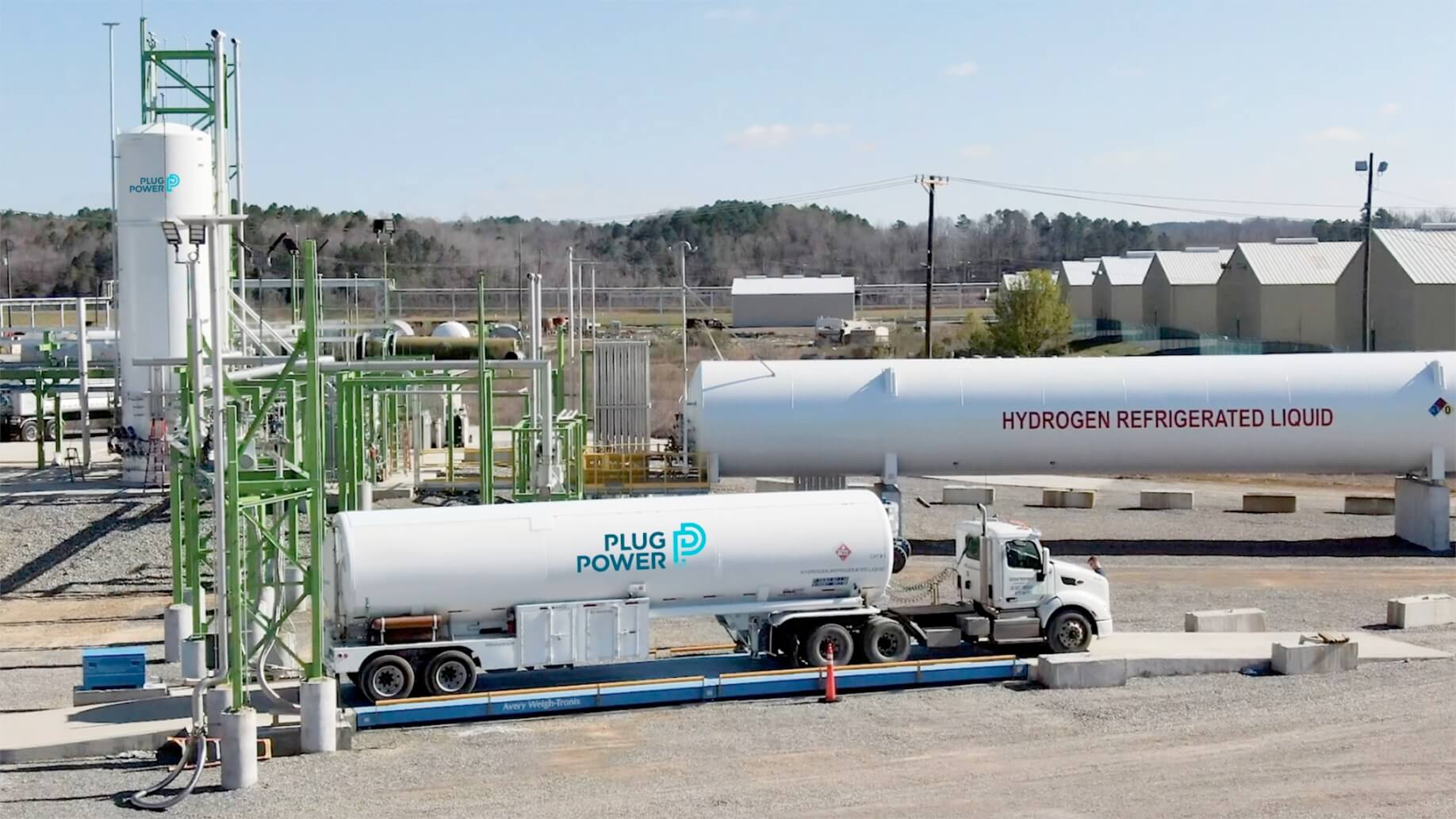Expanding Decarbonization Beyond the Grid
How Apex Is Pioneering in the Nascent Green Fuels Market: A Conversation with Apex’s Scott Weiss
Apex’s mission—to accelerate the shift to clean energy—has remained constant since its founding. But the pace of that acceleration, both within Apex and by the rest of the world, has rapidly changed. Countries, companies, and consumers are demanding decarbonization at every level of the global economy—including some of the most carbon-intensive industrial sectors, which will require gigawatts of clean energy to create a new generation of green fuels at scale.
As the market for decarbonization explodes, Apex is leveraging its industry-leading clean energy portfolio and an expanded commitment to innovation to meet the demand.

Scott Weiss, senior vice president for corporate strategy at Apex, leads the company’s green fuels initiative. Coming off the announcement of an unprecedented partnership, Weiss shares Apex’s point of view on the market opportunity for green fuels and the longer-term growth potential for initiatives across the company’s U.S. footprint.
How will green fuels help accelerate the shift to a clean economy? How important are they to the energy transition?
Green fuels are virtually essential to reaching net zero by 2050. Electricity represents approximately one-third of the total energy that we consume as a society, and while clean energy is decarbonizing that space, we need to tackle the other two-thirds.
We’ve made meaningful progress through electrification—and will continue to do so—but some substantial sectors aren’t easily reached through electricity. That’s where green fuels come in. By creating a molecule that we can use as a fuel, we’re able to reach difficult-to-abate sectors that we otherwise couldn’t decarbonize with clean electricity alone.
What are “hard-to-abate” sectors? Why are they so difficult to abate?
The global transportation (maritime shipping, aviation, tractor trailers), agriculture, and heavy industrial (fertilizer, chemical, and refining) sectors are difficult to decarbonize, but they represent a substantial portion of carbon emissions. For instance, maritime shipping alone emits about 3% of global greenhouse gas emissions—but using battery power isn’t feasible because of the scale of the batteries required to move massive freight across oceans.
Hydrogen power is a more efficient solution, meaning global transport can keep moving cargo at scale with speed and predictability. For all these sectors, green hydrogen and its derivative fuels, like green ammonia or green methanol, represent the most realistic path to decarbonization. Fortunately, these industries recognize this opportunity and are seeking partners to take action.
How is providing clean energy to the grid different from leveraging utility-scale wind and solar to produce green fuels?
As a renewable energy developer, often the biggest challenge we face is transmission—congested queues, uncertain timing, and unknown network upgrades, all of which can risk the economics of a project. Green fuels represent an opportunity to deliver renewable energy projects without being constrained by the electric grid. We can turn these electrons into molecules and transport them via pipelines or other means.
For Apex, this equates to a tremendous opportunity to develop projects with the best wind and solar resources in the nation and deliver the resulting energy with a high level of certainty on cost, timing, and reliability. Green fuels are completely aligned with our mission, and we wouldn’t be in a position to capitalize on them without our track record and experience over the past decade.
Once we realized the overlap in our expertise, our expansion into green fuels was obvious—and suddenly we were leading the creation of a brand-new industry in the United States.
Why is the Texas Gulf Coast a prime location for green fuels?
When it comes to green fuels, Texas is attractive for many of the same reasons it’s attractive for renewable energy. Land is plentiful, permitting is straightforward, and the resource is strong. But whereas transmission can present a challenge for renewables in certain parts of Texas, that’s not a concern or consideration for green fuels.
In addition, the Gulf Coast provides access to two potential offtake markets: first, the difficult-to-abate sectors like refining, chemical plants, or steel production in the industrial backbone along the Gulf Coast itself, and second, international markets through the Port of Corpus Christi or Houston. These ports are specifically designed for and experienced in energy export—so it’s simply a matter of taking advantage of the state’s strong natural resources to, for example, enable Texas sunshine to decarbonize a European industrial plant.
What is the long-term potential for green fuels export, and why is that important for our economy?
Exporting in general is beneficial for our economy; it stimulates domestic job growth and brings wealth into the country. When thinking about a nascent export market for green fuels, the United States has an advantage because established infrastructure and rule of law already exist—we’ve been exporting energy for decades.
Exporting green fuels would build on that heritage with the energy of the future, which will be in high demand not just here in the United States, but also across the world. Green fuels present an opportunity for many countries that have strong wind or solar resources but lack transmission, and therefore can instead be net exporters to nations with high energy consumption.
How did Apex get a first-mover advantage in this space?

Like most things, it’s about being in the right place at the right time. We are constantly looking to innovative models that can help achieve our mission, and a couple of years ago—when green fuels were not a part of our go-forward strategy—we made a connection with a leading clean fuels company.
That relationship, which blossomed into a collaboration agreement and the largest U.S. green hydrogen power purchase agreement, helped us recognize green fuels as an extension of our core business. Once we realized the overlap in our expertise—from transmission to new markets to procurement—our expansion into green fuels was obvious—and suddenly we were leading the creation of a brand-new industry in the United States.
Before long, I anticipate green fuels will evolve from a strategic initiative to part of the core business. We’ll no longer work under the assumption that a wind or solar project generates clean electricity; instead, we’ll determine whether a project should generate clean electricity, green hydrogen, or another clean fuel.
As an industry, we’re at the very forefront of green fuels. What can we expect in the near future?
The next few years will see critical advancements in the space. As an industry, I anticipate a number of announcements about mega projects in key locations like Texas, California, and the Upper Midwest—all of which are well-suited to green fuel development for various reasons. And then the true work begins, as different industries will need to figure out how to work together to realize these projects.
Picture renewable energy companies paired with traditional fossil-fuel pipeline companies—inventing that collaborative framework will take time. Then the opportunity and investment pay off with huge buildout in the second half of the 2020s. Apex will be right there, helping lead the way.
